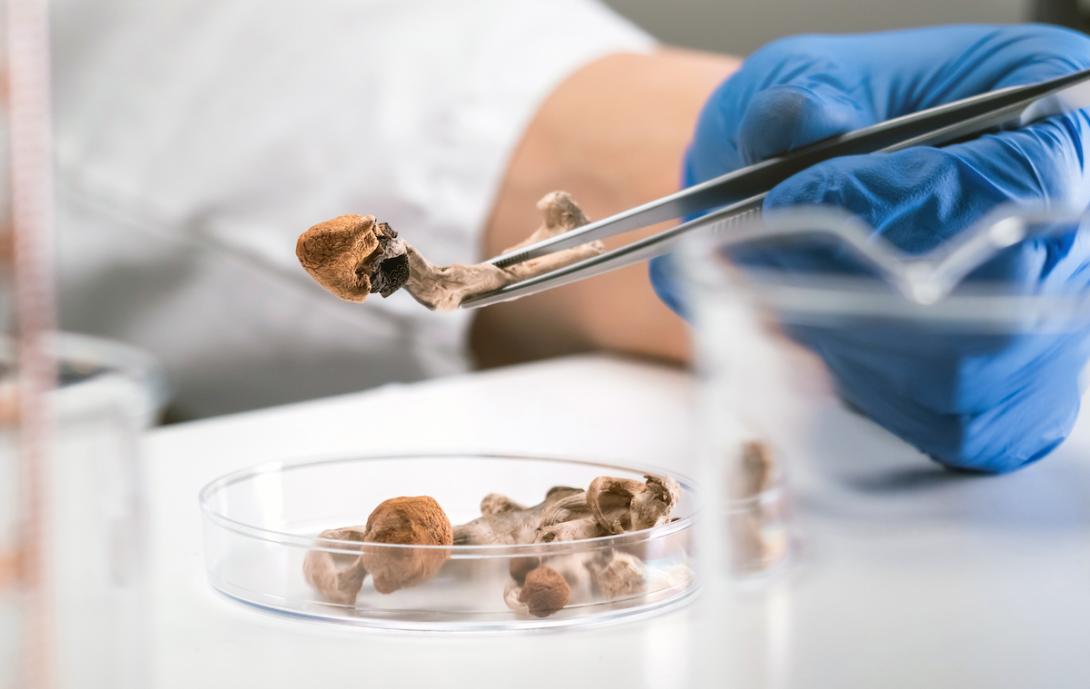
Questions, confusion and concerns abound as the Oregon Health Authority finalizes the regulatory framework to manufacture psilocybin, or psychedelic mushrooms, and administer it to treat anxiety, depression, PTSD and addiction.
But centers have begun accepting customers.
Oregon became the first state to legalize therapeutic, supervised use of psilocybin with the passage of Ballot Measure 109 in 2020. OHA's psilocybin services division last month held a public listening session.
These are some of the most frequently asked questions about psilocybin services in Oregon:
What is psilocybin and who is it for?
Psilocybin is a naturally occurring psychedelic compound found in more than 200 species of mushrooms. Research studies have found it to be helpful in the treatment of anxiety, depression, addiction and trauma-related conditions like PTSD.
Oregon manufacturers can only cultivate, manufacture or possess fruiting bodies of the fungi species psilocybe cubensis and psilocybin products derived from psilocybe cubensis, due to the amount of research on this mushroom.
Psilocybin historically has been used by indigenous communities for spiritual and ceremonial purposes such as in healing rituals and religious ceremonies.
Psilocybin services are available for those 21 and older and will not require a prescription or medical referral. But individuals cannot just walk into a store, buy it and take it home to consume like they do with marijuana in Oregon.
Individuals must go to a licensed service center and may only take the dosage during an administration session supervised by a trained and licensed facilitator. Centers also provide preparation sessions in advance and integration sessions after the administration session.
Manufacturers must also be licensed by the state, and licensed laboratories must test the products. In most cases, manufacturers may only possess 200 grams of psilocybin and service centers are limited to possession of 100 grams. A dosage or serving of a psilocybin product may not contain more than 25 milligrams.
The hallucinogenic effects typically last four to six hours.
When will psilocybin services be available?
Oregon's psilocybin services adopted its final rules in December and began accepting applications for licensure Jan. 2. The rules advisory committee continues to review and make fixes to rules, but licensees are able to begin providing services at any point.
It is up to licensed service centers when they open their doors to clients. Thus far, six service centers, 68 facilitators and 210 workers have received a license.
Where will psilocybin treatment be available?
Licensing for psilocybin manufacture, testing and facilitation is ongoing, but there is a directory of current licensees who have consented to having their information shared at psilocybin.oregon.gov/license-directory, including EPIC Healing Eugene.
Measure 109 allowed local jurisdictions to opt out of psilocybin legalization by sending it back to voters. Twenty-five Oregon counties and more than 100 cities voted in the November election to ban psilocybin service centers within county or city limits, including Cottage Grove and Creswell in Lane County and the unincorporated areas of Marion and Polk counties.
Oregonians can travel to receive psilocybin services even if they are banned in their county or city of residence.
Is psilocybin treatment expensive and will insurance cover it?
Oregon cannot regulate the price of products, so prices will be up to independent providers and service centers.
In a panel hosted by the Healing Advocacy Fund in early May, industry leaders estimated sessions may cost about $1,500, but emphasized nonprofit efforts to make it more accessible.
All licensees are required to submit social equity plans with applications and yearly renewals to ensure they plan to consider access and affordability in their business practice.
There are no options currently for insurance coverage of psilocybin services.
What kind of licensing is there to provide, grow, test psilocybin?
There are four types of licenses associated with psilocybin services:
- Manufacturer licenses must be obtained to grow and produce psilocybin products.
- Laboratory licenses can be obtained by any Oregon Environmental Laboratory Accreditation Program (OELAP) accredited lab wanting to test psilocybin products before they are sent to service centers.
- Service center licenses must be obtained by buildings of any size seeking to provide psilocybin services on site.
- Facilitator licenses are required for anyone present with clients during psilocybin preparation, administration and integration sessions.
Applications for licensing and worker permits are available on OHA’s psilocybin services page. Individual fact sheets outlining requirements for each type of license are under the “Licenses and Worker Permits” section.
What is the cost to get licensed?
The current cost to become a licensed psilocybin facilitator in Oregon is $2,150, plus training fees. Licensed training programs often cost several thousand dollars. Eugene's Subtle Winds three-month program costs $9,000 plus books, food and lodging for in-person training weekends.
The price to license a psilocybin service center or become a manufacturer is $10,000, plus application fees. The licenses must be renewed yearly. Nonprofit entities will pay less.
Until 2025, psilocybin manufacturers and service centers must be at least 50% owned by Oregon residents.
Sydney Wyatt covers healthcare inequities in the Mid-Willamette Valley for the Statesman Journal. Send comments, questions, and tips to her at [email protected], (503) 399-6613, or on Twitter @sydney_elise44